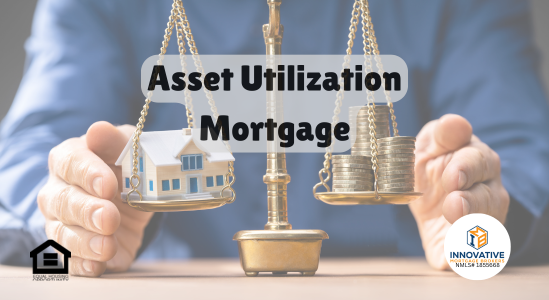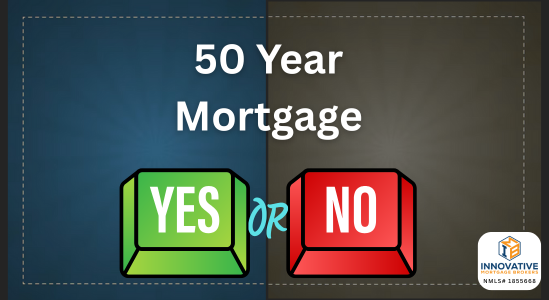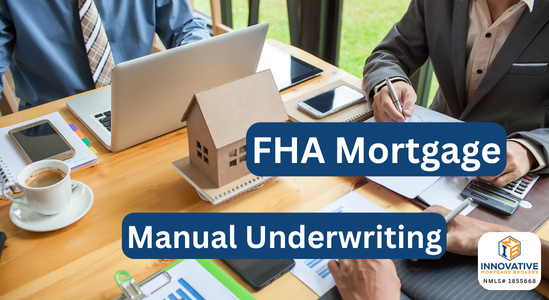Mortgage rate volatility, oil shocks, and why execution matters more than quotes When a war…
When Assets Work Harder: Asset Utilization Mortgages
How to Use Your Investments to Secure a Home Loan
If you have significant assets but don’t meet traditional income qualifications for a mortgage, there’s an innovative solution that might suit your needs: the Asset Utilization Mortgage, a type of Non-Qualified Mortgage (Non-QM) loan. This program allows you to use your portfolio assets—such as savings, investments, and retirement accounts—as a basis for qualifying for a mortgage, all while keeping those assets invested and potentially growing.
How Does the Asset Utilization Program Work?
Traditional mortgages typically require borrowers to demonstrate sufficient income through pay stubs, W-2 forms, or tax returns. However, not everyone has a conventional income stream, especially self-employed individuals, retirees, or those with substantial investments generating non-traditional income.
The Asset Utilization Mortgage calculates your ability to repay the loan based on your liquid assets rather than your income alone. Here’s how it generally works:
- Asset Calculation: Your qualifying assets are totaled and then divided over a set period to determine a monthly income equivalent. This period provides a long-term view of your asset performance.
- Eligible Assets: Assets can include savings accounts, stocks, bonds, mutual funds, and retirement accounts. The program allows you to use these assets without needing to liquidate them.
- Flexibility in Loan Purpose: Whether you’re purchasing a new home, refinancing an existing mortgage, or looking for a cash-out refinance to tap into your home’s equity, this program can accommodate your needs.
Key Features of the Asset Utilization Mortgage
- Income Qualification: Instead of relying solely on traditional income documentation, this program uses your assets to establish your ability to repay the loan.
- No Age Restrictions on Retirement Accounts: You don’t have to be of retirement age to use retirement assets for qualification, making it accessible to younger investors and early retirees.
- High Loan-to-Value (LTV) Ratios: The program allows for higher LTV ratios, enabling you to finance a larger portion of the property’s value without substantial down payments.
- Combination of Income Sources: You can combine traditional income documentation with asset utilization, offering greater flexibility in how you qualify for the mortgage.
Flexible Loan Terms
The Asset Utilization Mortgage offers various loan terms to suit different financial strategies:
- Fixed-Rate and Interest-Only Options: Choose from long-term fixed rates, interest-only periods, or adjustable-rate mortgages (ARMs) based on your financial goals.
- Eligible Loan Types: This program can be used for purchases, rate-and-term refinances, or cash-out refinances, making it versatile for different financial goals.
- Diverse Property Eligibility: The program is accommodating regarding property types, including unique investments like certain condos or vacation properties.
Maximizing Cash-Out Potential
A notable feature of this program is the ability to access your property’s equity without stringent limitations. This cash-out option allows you to leverage your home’s value for other investments, such as purchasing rental properties or diversifying your investment portfolio.
Who Can Benefit from the Asset Utilization Mortgage?
This program is ideal for:
- High-Net-Worth Individuals: Those with substantial assets but irregular or non-traditional income streams.
- Self-Employed Professionals: Business owners or freelancers who may have fluctuating income.
- Early Retirees: Individuals who have retired before the conventional retirement age but possess significant assets.
- Investors: Those looking to keep their capital invested while still qualifying for a mortgage.
Advantages of the Asset Utilization Mortgage
- Keep Investments Intact: There’s no need to liquidate your assets, allowing them to continue generating potential returns.
- Alternative Qualification Method: Provides an option outside of standard income requirements, which can be particularly beneficial for those with strategic tax planning that reduces taxable income.
- Financial Efficiency: By leveraging existing assets, you can optimize your financial resources and potentially secure favorable loan terms.
Considerations Before Applying
- Asset Documentation: Be prepared to provide thorough documentation of your assets, including all pages of your account statements and valuations.
- Interest Rates and Fees: Non-QM loans may have different interest rates and fees compared to traditional mortgages. It’s important to evaluate the overall cost.
- Loan Terms Review: Carefully examine the loan terms, including any conditions or penalties, to ensure they align with your financial strategy.
Is the Asset Utilization Mortgage Right for You?
The Asset Utilization Mortgage offers a unique pathway to homeownership or refinancing for those who might not qualify through traditional income measures. By considering your total asset picture, it opens doors that might otherwise remain closed.
However, as with any significant financial decision, it’s crucial to:
- Consult with Professionals: Speak with a qualified mortgage advisor who can assess your specific situation and guide you through the options.
- Evaluate Your Financial Goals: Consider how this mortgage fits into your overall financial plan, both short-term and long-term.
- Understand the Risks: While keeping your assets invested can be beneficial, it’s important to be aware of market fluctuations and how they might impact your financial standing.
Conclusion
The Asset Utilization Mortgage provides a flexible alternative for individuals with substantial assets seeking to purchase a home or refinance an existing mortgage without relying solely on traditional income documentation. By leveraging your portfolio, you can maintain your investment strategy while accessing the financing you need.
This program underscores the evolving nature of mortgage lending, catering to diverse financial profiles and offering solutions that align with modern financial realities.





